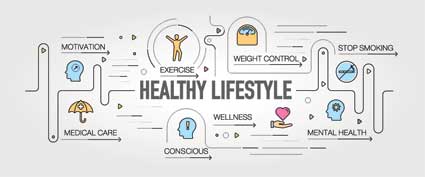Almost everyone has to give a speech at some point in their lives. Many of us have to do it with alarming regularity, whether it's at school, at work, or for social functions. No matter how well we think we know the material, as soon as we get up in front of a group of people, everything we thought we knew is quickly forgotten.
The problem with public speaking is that most of us are afraid of forgetting what we want to say and being embarrassed in front of a crowd, whether the "crowd" is the five people in our work crew, or several hundred people at a convention. By learning some techniques to help you remember any speech effectively, you can overcome your fear of public speaking for good.
Everyone's Doing It
You may be thinking that you won't have to make a speech any time soon, but you'd be surprised. What about your next job interview? Won't you essentially be presenting a kind of speech about yourself? So many people stumble when asked, "Tell me about yourself," because they aren't sure where to begin or how much to say. Proper preparation and memorizing the key information they want the interviewer to know, would make their interview go much more smoothly.
Think of other situations when you might be called on to talk about yourself, or something you've done: job reviews, church meetings, classes, club meetings, political rallies, administrative sessions, budget reviews -- the list could go on and on.
The key to making a good speech is preparation. If you want to sound knowledgeable and confident, you have to take the time to prepare your material beforehand, and rehearse it until you are comfortable with it. The following steps help you through the process:
Preparing Your Speech
Choose Your Topic Wisely. Sometimes a topic is assigned, sometimes it's not. If it isn't, be sure to choose one that's interesting enough to keep the audience engaged. You should also consider whether it's too broad or too narrow � either way, and you'll either have to gloss over important facts, or you'll run out of information.
Do Your Homework. Don't rely on last-minute research to carry the day. Make sure you gather whatever data you need well in advance of your speech, so you'll have time to read through it at least twice in a leisurely manner, and take thorough notes.This will help imprint the information on your memory, so you'll be able to recall details and statistics more readily when you give your speech.
Organize Your Material. Lay everything out and determine what points you want to make. Make an outline of the key issues and organize your research to support those issues.Think about stories or anecdotes that illustrate the points you're making and flesh out the speech with them.
Now, you have several choices on how you're going to put your speech together. Some people prefer to write out their entire speech word-for-word. If you feel more comfortable doing this, it's fine for the first draft, but we urge you not to use the text as your guide when giving a speech! In fact, reading an entire speech from typed or written pages is the kiss of death for most public speakers. It seems very stilted, the speaker makes little or no eye contact with his audience, and there are too many opportunities for mistakes -- like pages sticking together, skipped lines, or losing your place.
Instead, take the written speech and convert it into notes. Seems a bit backward, doesn't it? It can be, but it works for a lot of people who like to write out a draft of their speech. Some people don't and just go directly to the notes, which is also fine. These are the people who prefer to "ad lib" a bit more when making a speech. So what should the notes for your speech have on them?
Making Notes for Your Speech
Invest in some 3 X 5 index cards to take notes for your speech. They're much easier to hold in your hand and flip through than sheets of paper, and easier to organize. You can write one major idea in large letters on each card. Be sure to write your notes large enough to be easy to see at arm's length, and limit yourself to one thought on each card. At most, you should have one sentence per card.
Let's take a look at a speech asking for funding for a new wing at a hospital:
Topic: "The Need for a Children's Wing at Mercy Hospital"
-
- We need a specialized children's wing at Mercy Hospital.
- The population of our city has increased steadily in the last 10 years.
- The greatest increase has been in families with young children.
- Offering specialized hospital services to the families in our area will not only better serve our community, it will continue to entice others to move into our area and promote growth.
- The benefits will include a stronger tax base, improved economic investments, and lower health care costs because of improved health for children.
The cards might look like this:
|
Practice your speech a few times using the note cards. If you need to, glance back through your longer notes, or your written speech, to refresh your memory the first time. But you will discover that, if you've prepared properly, you won't need much prompting to recall plenty of information. In fact, with five note cards, you can give a speech that's between 15 and 20 minutes long, with no problem.
Visualizing
Once again, our memory stores information when it has input from more than one of our senses, so if you have the opportunity, run through your speech in storyboard format. On a chalkboard, white board, or even on a sheet of paper, draw images that correspond with your speech, as you're making your speech. Divide the board, or your sheet of paper, into squares corresponding to the points you will be making in your speech. For instance, in the hospital speech above, for "specialized children's wing," you could draw a stick figure of a child in a hospital bed inside a building with wings on it.The symbolic pictures will imprint the words of your speech more firmly in your mind as your rehearse.
Practice makes perfect is, of course, a tired old expression with lots of truth to it. But the way you practice is important. When you rehearse your speech, don't just read through it, or go through your cards and run through the speech in your head. You're short-changing yourself if you do this.
The reason theaters always do a full dress rehearsal before the opening night of a play, is because the directors know that nothing else can prepare you for the "real thing" like running through the play exactly like you're going to do it on opening night. The same goes for giving a speech. If you really want to be prepared, and you really want to be able to remember your speech when the time comes, rehearse it exactly as you're going to give it � stand the same way, look up as though you're really in front of your audience, speak in a full voice, use hand gestures, and if you're going to be using visual aids, use those, too.
You'll be reinforcing the memory of your speech by hearing the words, as well as thinking them and reinforcing them with hand gestures and visual aids.
For the Daring Speech Giver
Are you feeling daring? If so, consider giving your speech without note cards at all. If you've reviewed your note cards several times, rehearsed them properly with full use of body language and used visualization, you may already have your speech memorized and not even realize it!
If not, there are a few more things you can try. First, go back to your note cards and use the chain linking method to tie together each of your note cards, so you can easily get from one point to the next with a question that your audience members would logically ask. Putting yourself in the shoes of your audience makes it very easy to link your notes and keep on track with your speech:
Why?
So what?
What will a children's wing provide?
What's the overall impact?
|
By linking each of the cues on your note cards with a question, you can more easily remember them, without looking down. Of course, you may want to keep them, just in case.They can be a sort of "security blanket" for you. Just remember to flip through them as you make each point!
If you're really fortunate, you will either be familiar with the area where you'll be giving your speech, or you will have the opportunity to check it out beforehand. In either case, you could mentally peg each of the points you want to make to a particular point in the room. For instance, you could hang an image of the "specialized children's wing" on the pillar by the door, and put the "population increase" in the coffee urn, imagining it filling the urn until it explodes. You get the idea. When you stand up to make your speech, as you glance around the room, all of the cues you need will be right there in the room and everyone will be impressed by your ability to make such a detailed speech with no notes whatsoever. Only you will know the preparation that went into your seemingly effortless and confident speech!
We've reviewed quite a few mnemonic devices and specific methods for training ourselves to remember more information -- such as long lists of information, speeches, names, and faces. But what about the everyday stuff? Sometimes we just want to remember to pick up the dry cleaning. There are ways we can improve our memory, in general, and some simple ways to remind ourselves of what we need to do each day, as well.
Reminding Ourselves Not to Forget
Some days we're so busy, it's inevitable that at the end of the day we smack ourselves on the forehead and think, "Darn! I knew I forgot to dosomething!" Don't be too hard on yourself, we've all been there. Our lives are so hectic that it's not what we forget that should be surprising, it's what we manage to remember that's impressive.
Sometimes all we really need is a reminder. We haven't really completely forgotten that we have clothes waiting at the dry cleaners, or that we need to go to the bank; the information has simply temporarily been misfiled. To jog our memory, we can do any number of things that will jar the memory of that information loose:
Making lists is a time-honored way to keep track of what you need to do each day. Surprisingly, the act of making a list has more of an impact on whether you remember what's on it than the list, itself. If you say the items on your list out loud while you write them down, you'll retain them better. Make the list of things you need to do the night before, and you'll increase your recall of the list even more. "Sleeping on it" actually improves recall of information by as much as 20 percent. This is why it's better to study and review your notes the night before a test, than the morning of a test.
Calendars are a close relative of lists. Make it a habit to write down every engagement on a calendar you keep with you or have hanging in a handy spot in your home or office. Every time you write down a new engagement, review what's already written to reinforce the memory.
Hiding in Plain Sight can be the simplest solution for occasional memory lapses. If you habitually forget where you put your keys, don't give in to frustration. Simply create a place that's logical and easy to remember. Mount a key rack near the front door or next to the door to the garage, and get into the habit of hanging your keys there. If you've lost more pairs of sunglasses than you care to think about, consider investing in a lariat chain so you can hang your glasses around your neck -- or start tucking your glasses into the neck of your shirt. Sometimes the obvious solution is the best. If you can put less time and energy into worrying about these little annoyances, you will be able to devote more of your brain power to remembering the important stuff!
External Cues are any physical reminder you use to remind yourself to do something. These are the traditional "string around your finger" signals that you need to do something. Some people put a rubber band around their wrist, switch their watch to the opposite arm, or put a paper clip on their lapel. These are fine, providing you know what the cue is reminding you of; however, if you want something more specific, choose an external cue that directly relates.
For instance, if you need to remember to drop off the dog at the groomer's on the way to work, loop her leash around the doorknob so you'll see it on the way out of the house in the morning. Do you need to make an important phone call after work? Put your phone near the oven so you'll remember when you start dinner.
Teaching someone else is one of the best ways to reinforce what you've learned. If you want to strengthen your memory of anything � a childhood memory, a recipe, the directions to a great restaurant � tell it to someone else. If you can explain it so they can understand you with no problems, then you've fully learned and retained the memory. If you can't explain it, then you don't really know it. Any time you want to make sure you really remember something, try rephrasing it and teaching it to someone. You'll be amazed at how much you can recall when you have to share it with someone else!
Retrace Your Steps when you can't remember something. Have you ever walked into a room and thought, "Why did I come in here?" When it happens (and it will), go back to the room you were in and retrace your steps. If you go back to what you were doing and think back to what was happening before you entered the room, you will often be able to retrace the paths of those thought processes and it will trigger the memory of what you were thinking when you went into the room the first time.
Take Immediate Action � This is one of those statements that seem obvious, but most people don't put into practice. How many times have you thought about something you needed to do, but brushed it aside, thinking, "I'll do that later,"? Only later, you can't remember what it is you wanted to do! A good motto would be, "Do it when you think it." Whenever it occurs to you to take care of something, take action at that time. People will be very impressed with how efficient you are, and how sharp your memory is, because you always remember to do everything, when in reality it is simply because you aren't procrastinating. Many times when we procrastinate, we put things off until the task simply slips from our memory, or is replaced by more pressing concerns (Remember, our brain can only store a finite amount of information). If you take care if the issue the first time you think of it, this won't happen.
All of these tips can help you be a bit more organized and help you remember the little things you need to do each day, but the most important thing you can do for your memory is to keep your brain in top condition.
Keeping the Brain Sharp
The healthier your brain is, the better your memory will be. A healthy brain is one that is well-nourished and well-exercised. Exercising your brain means using it! Your memory will function at its best if you continue to develop numerous connections and faster signals in your brain, and if your brain continues to develop new, strong cells. Several things that help you to do this include:
Reading of any kind, but particularly books that are intellectually challenging, enhances memory. Try reading biographies, histories, or learning a new language. Mysteries and detective novels are also great for your memory.
Puzzles and skill games, such as chess, crossword puzzles, game shows, Scrabble, or Risk are excellent for improving memory. They not only improve your reasoning skills, they require you to sharpen your memory in order to recall moves made previously to develop strategies for future moves.
Sensory stimulation from colors, patterns, textures, and sounds all contribute to brain stimulation. Listening to, and making, music in particular enhances brain function, as does any creative activities, such as arts and crafts.
Pets seem to enhance memory capabilities in many people, although the jury is still out on why. It's been theorized that it may be that caring for another living creature that is totally dependent on you forces people to rely on their memory for essential tasks, such as feeding, watering, and daily walks, and that this reinforces other aspects of memory. It may also be that a pet is an external clue in itself � it's difficult to forget to care for your dog when he's right there in front of you. While the reason is still unclear, the effect seems clear � people with pets tend to have better memories than people without pets.
Finally, relax and worry less about your memory! Stressing too much about what you are trying to remember practically guarantees that the elusive memory will stay out of your reach. On the other hand, if you relax, take a deep breath, and let yourself stop stressing over it, the memory may come to you when you least expect it.































